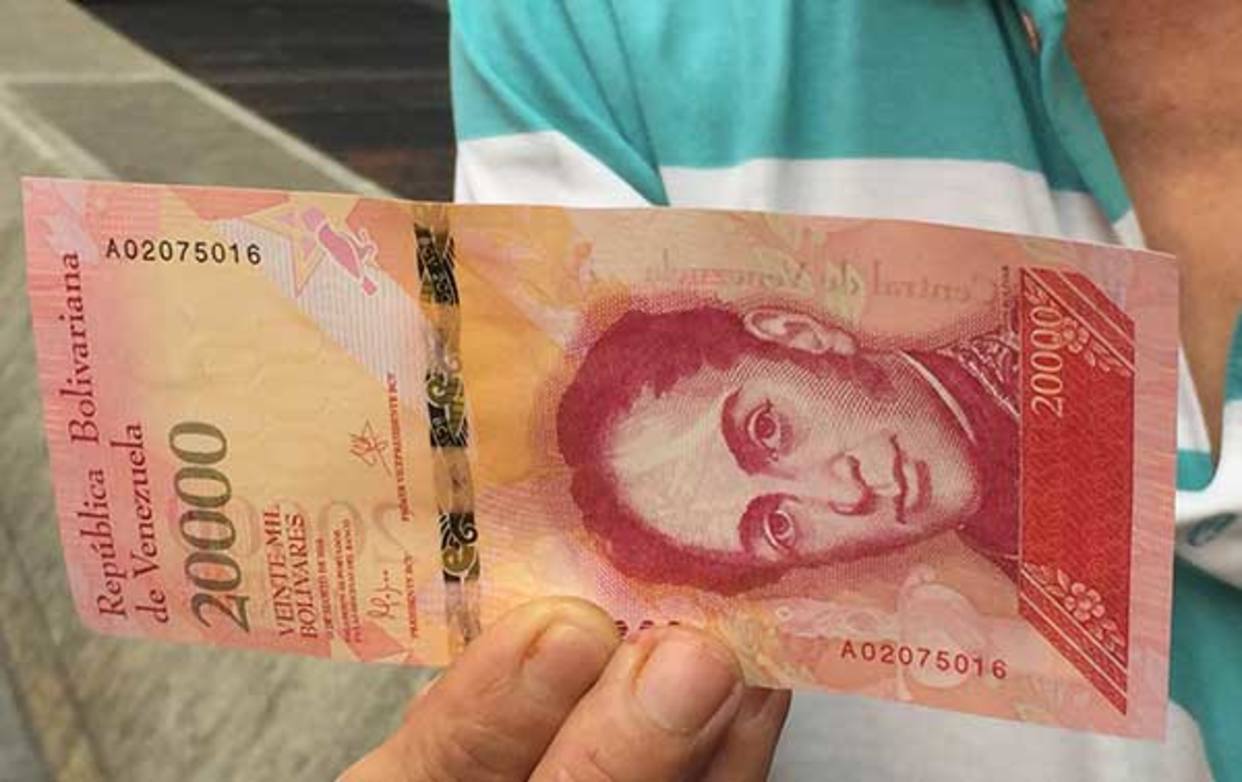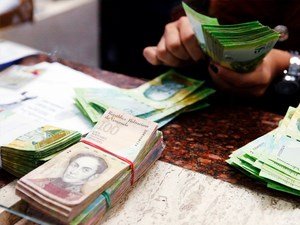The currency of Venezuela, the Bolívar, bears the name of Simón Bolívar, the hero of the 19th century venerated in South America for leading the struggle for the independence of Spain. But the recent history of the bill that he inspired is much less glorious: the lower value bills have become practically useless, and now Venezuela is running out of them. A user can withdraw through ATMs a maximum per day of between 10,000 and 20,000 bolivars, although many times some spend hours without cash available The shortage of cash that has been recorded in Venezuela for months has left the country's banks with few bills for its users, and has even completely cut the flow in some bank branches that today do not have any denomination banknotes. For example, in the office of the private group Banesco dispatches a maximum of 20,000 bolivares per user (about six dollars according to the official reference rate), while the state bank of the Treasury delivers a maximum of 50,000 bolivars (about 16 dollars) to each citizen that has an account under the figure of "natural person".
The Superintendency of Banking Sector Institutions (Sudeban) recently ordered the banks "to arrange and maintain high denomination banknotes" for payment to the elderly, persons with disabilities and pensioners, to whom they requested that they be given "the exact amount requested by these". udeban, in addition, promotes a campaign in social networks against the "bachaqueo (contraband) of tickets", after the head of that agency, Antonio Morales, denounced that about 30% of the distribution of tickets that is doing the Central Bank of Venezuela (BCV) deviates towards the border.

Hundreds of people cross the border to change bolivars and thus receive more money, where the only requirement is to have cash and a bank account in Venezuela, resulting in the shortage of cash that has been registered in the country for months. , leaving completely blocked the flow of bolivars in some banks that today do not have tickets of any denomination, even so the National Guard registers a boom in the confiscation of Venezuelan banknotes in the border control posts, with astronomical sums. However, these activities are not strictly related only to the smuggling of foreign currency. The mafias that are managed in this type of market have found an "easier and safer" method for the resale of paper money, such as the "bachaqueo" of bolivars. To fully address this issue, it must be understood that the mafias are organizations of power, where officials of both countries are involved, characterized in obtaining allies of turn, regardless of the political tendency, to plunge large corruption facts with selective blindness. However, border businesses are also exploited by mafias of smugglers of food, medicine and gasoline that operate in the noses of the authorities, becoming a multi-million dollar business. But ... where do the tickets go in cash and how does that money come from illicit acts? Almost everything purchased for contraband is made in cash, and the pesos are exchanged by transfer.

paying with plastic creates new problems. The growing number of electronic transactions can cause the Internet connections of card readers to collapse. The empty shelves in the supermarkets induce many Venezuelans to look for sellers on the black market who sell milk, rice and other basic foods, but only accept paper money.
muy buen post sigue asi ya que tambien la moneda venezolana se devalua
Downvoting a post can decrease pending rewards and make it less visible. Common reasons:
Submit